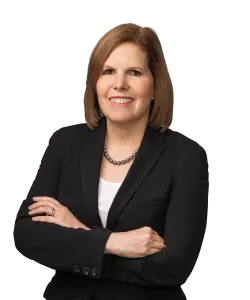Time for Employers to Decide Who They Are Sponsoring for H-1Bs
It’s that time of year again when employers have to decide who they are sponsoring for an H-1B visa.
What to Know
- The lottery registration period will be from 12:00 pm EST on March 1, 2023, to 12:00 pm EST on March 17, 2023, and the US Citizenship and Immigration Services (USCIS) intends to notify employers by March 31, 2022, if their registrations were selected in the lottery.
- Employers should decide who they would like to submit into the lottery now given the impending March registration timeline.
For a brief background, H-1B work visas are the most common work visas for foreign nationals in professional positions (which are jobs requiring at least a bachelor’s degree in a specific specialty). The USCIS caps the number of H-1B’s they issue each year to 65,000 for those with a bachelor’s degree and an additional 20,000 to those with at least a masters from a US institution. Certain categories of H-1B’s are exempt from this cap (meaning they can apply for an H-1B anytime), including those:
- transferring H-1B’s from one employer to another,
- extending existing H-1B’s,
- working for US colleges or universities, and
- working for non-profit research organizations.
Historically, more H-1B cap-subject applications are submitted every year than spots allowed, and, thus, the USCIS conducts a lottery every year to randomly choose which applications it will process.
Employers must register each foreign national they wish to sponsor for an H-1B through the USCIS’ online H-1B registration portal. The USCIS will conduct a random lottery based on all the registrations, and those chosen in the lottery will be given at least 90 days to file their full H-1B applications. The earliest H-1B start date you can request in the full application is October 1, 2023.
The lottery registration period will be from 12:00pm EST on March 1, 2023, to 12:00 pm on March 17, 2023, and the USCIS intends to notify employers by March 31, 2023, if their registrations were selected in the lottery. If this registration window is missed, employers must wait a year until next March for the next H-1B lottery for a chance at an H-1B for their foreign national employee. So, it is important to do a full assessment of all upcoming staffing needs now.
Those not chosen in March will remain in the electronic lottery registration system, and, if additional H-1B spots become available, the USCIS will choose additional H-1B applications from that reserve. Last year, no additional spots became available. For the two years prior, however, the USCIS conducted a second lottery from this reserve in August, and, in 2021, there was a third lottery in November. This year, we expect the USCIS to choose sufficient applications in March so that there is not likely to be a second lottery.
Each lottery registration will cost $10 in filing fees to be paid online through the pay.gov site. If the USCIS determines that an employer has a pattern or practice of submitting multiple lottery registrations but then not following up with filing full applications if chosen in the lottery, the employer may be fined and face civil & criminal penalties for fraud.
Regarding those in F-1 (foreign student) Optional Practical Training (OPT) status, as long as they were selected in the lottery and their full H-1B application was filed prior to their OPT expiration date, their OPT work authorization will be automatically extended through September 30 (unless their H-1B is rejected, denied, revoked, or withdrawn prior to that date). To ensure that this OPT extension is activated in a timely manner, those in F-1 OPT status may want to file their full H-1B’s as soon as they are notified that they were chosen in the lottery (rather than using much of their 90-day filing window).
Generally, those with expired OPT’s will not have international travel authorization. In addition, anyone filing for an adjustment (or change) of status from one visa category to an H-1B cannot travel internationally while the H-1B application is pending. Otherwise, although the H-1B status may still be approved, the employee will have to leave the US, obtain an H-1B visa at a US Consulate abroad, and then reenter the US to activate the H-1B, instead of just automatically changing into H-1B status on October 1.
Foreign nationals must have their qualifying degree by the time they file the full application. A foreign national who is close to graduating with their bachelor’s degree can be registered by the employer for the lottery, and then, if chosen in the lottery, take the full 90-day period to file the full H-1B application to allow time for the degree to be awarded.
Employers should decide who they would like to submit to the lottery now given the impending March registration timeline. The lottery is only for someone’s initial H-1B, not H-1B extensions or transfers. So, typically, they are: (1) F-1 (foreign students) who recently graduated and are working with OPT work authorization, (2) those working with H-4 or L-2 Employment Authorization Documents (EAD) who want their own independent work visa through their employer instead of relying on their spouse’s status & expiration dates, and (3) TN’s who are thinking about starting the green card process (because you generally cannot file for a green card while in TN status).
Although those are the most typical categories, other employees are also commonly registered in the lottery, such as F-1 students finishing an advanced degree who have Curricular Practical Training (CPT) work authorization, and those living abroad with no current US immigration status. Employees in other statuses may also be eligible.
The immigration team at ArentFox Schiff can help you assess whether your employee’s position would qualify as a specialty occupation including whether the employee has the necessary educational credentials in the field of study, and can assist you with the registration process. Please contact Berin Romagnolo or Nancy Noonan with any questions.
Contacts
- Related Practices

